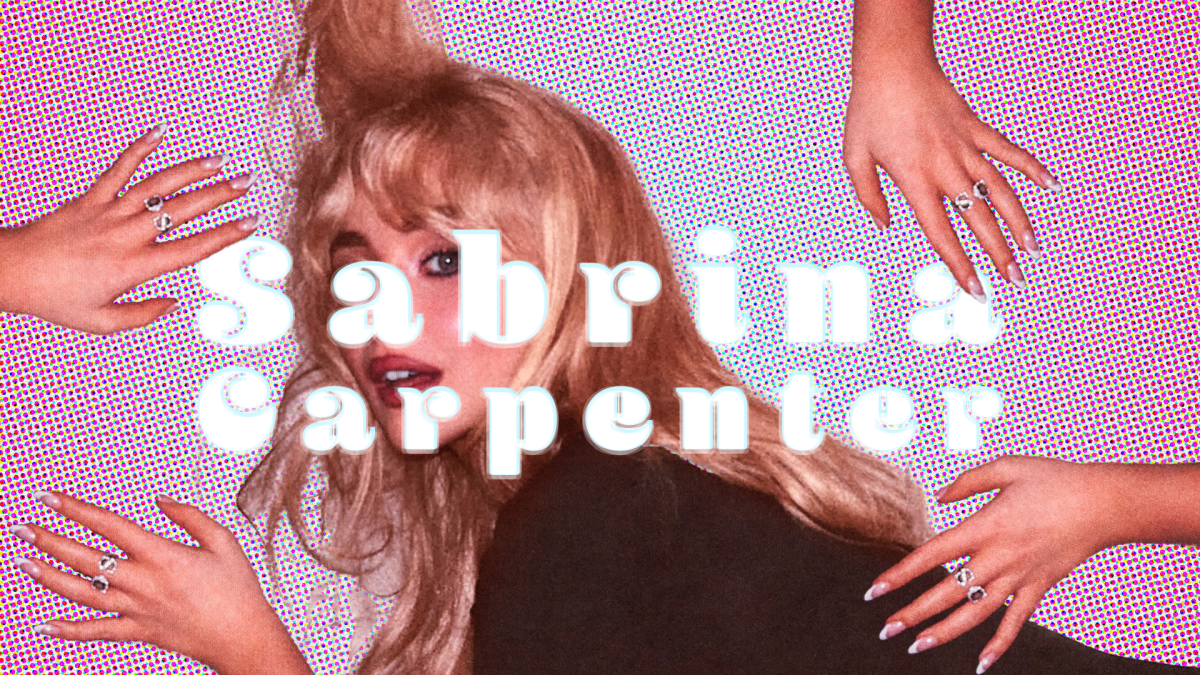Sabrina Carpenter’s newest album, “Man’s Best Friend,” released at the peak of her artistic momentum, shows Carpenter refusing to be anyone’s pet project. Instead, she’s biting back with an album full of humor, experimentation and sharp social commentary, all while keeping the pop instincts that helped “Short n’ Sweet” earn Best Pop Vocal Album at the 67th Grammys.
Following the huge success of “Short n’ Sweet” last year, “Man’s Best Friend” arrives as both a continuation of that momentum and an exploration of new territory.
Where “Short n’ Sweet” thrived in tight, high-gloss pop structures with clever digs at romance and fame, “Man’s Best Friend” stretches wider, pulling from different corners of popular music. From disco and ABBA-inspired retro-pop to country fiddle and psychedelic guitar solos, Carpenter refuses to stay boxed in. It’s an ambitious gamble that largely pays off, though sometimes the wide range of styles makes the album feel more like a sampler platter than a single statement.
The record kicks off with “Manchild,” the first single and a sharp, tongue-in-cheek critique of male incompetence. Carpenter wastes no time setting the album’s tone with lines like, “Why so sexy if so dumb? / And how survive the Earth so long?” The track prepares listeners for a record full of wit, sarcasm and playful self-deprecation, combining the sound of “Short n’ Sweet” with a broader palette.
The eclecticism of “Man’s Best Friend” might feel a bit overwhelming at first, but Carpenter provides listeners with a wide range of influences to enjoy. “Tears” dazzles with a disco shimmer and features her classic act of dancing around an idea with metaphors until finally outright telling the listener. Meanwhile, “Goodbye” leans heavily into ABBA-inspired harmonies and buoyant melodies that make you want to tap your feet and sing along.
“We Almost Broke Up Again Last Night” pivots into a psychedelic guitar solo that lifts an otherwise breezy song into vibrant territory. “Go Go Juice” sneaks in a fiddle solo that feels both strange and fitting, bringing in the sort of zany energy you can feel from a Beatles song.
But the crowning jewel of experimentation is “Sugar Talking.” Unlike anything else in her discography, the song simmers with a slow, methodical groove reminiscent of funk and soul, grounded by a subtle country touch. Lyrics like, “You filled my whole apartment with flowers that die” showcase Carpenter’s ability to turn humorously devastating imagery into unforgettable hooks. She also stretches into the lower part of her vocal range, which I felt topped her typical breathy, high-pitched vocals. The hazy guitar solo near the end seals it as one of her strongest tracks so far.
Thematically, Carpenter continues to deconstruct gender stereotypes and relationship dynamics, building on the voice she created in “Short n’ Sweet.” Songs like “Never Getting Laid,” “Nobody’s Son,” “Go Go Juice” and “Manchild” sift through disappointment in immature partners without ever sounding self-pitying. Instead, her humor and irony highlight comments on double standards lightheartedly rather than with bitterness. Other tracks like “House Tour” encapsulate the same sort of cheeky innuendos as used in “Short n’ Sweet.”
Given the album’s wide range of styles and themes, not every song dives into deep or complex emotions. “Tears,” for instance, is about Carpenter feeling aroused by a man who can treat her right. Not every song has to be a poetic masterpiece, especially in an album filled with plenty of witticisms.
One slower track that didn’t quite hit for me was “Don’t Worry I’ll Make You Worry.” Carpenter sings about keeping a lover guessing and leaving him feeling like “a shell of a man.” While the theme of subtle retaliation is clear, the song felt a bit heavy-handed and lacked the sharp wit and catchy hooks that make other tracks stand out.
“When Did You Get Hot?” stands out the most compared to the rest of the album, but not entirely in a good way. While its lyrics fit with the album’s themes, its strong R&B style feels wildly out of place compared to the rest of the songs. The sharp contrast ends up detrimental, breaking the overall flow and making the track stick out for reasons that aren’t always positive.
It’s impossible to discuss “Man’s Best Friend” without mentioning the album cover controversy. Critics argued that imagery showing Carpenter bent down in front of a man holding her hair blurred the line between satire and reinforcement of traditional gender roles. But to dismiss her work as ambiguous is to underestimate her. Carpenter has long wielded satire as her sharpest weapon. Throughout the album, her lyrics position her as an active critic rather than a passive participant. The humor, reversals and exaggeration throughout the record make her subversion unmistakable.
If “Short n’ Sweet” consolidated Carpenter’s pop power into a near-perfect snapshot of romantic wit and sleek production, “Man’s Best Friend” feels sprawling, testing her influence across genres.
While “Man’s Best Friend” may not be perfectly cohesive, its moments of brilliance and experimentation more than make up for the occasional unevenness. Carpenter shows she is willing to take risks and challenge expectations, refusing to settle into a comfortable or predictable sound. This restless energy and sharpness of vision keep the album engaging from start to finish.
Even if the album sometimes bites off more than it can chew, it stands as proof that Carpenter’s wit and artistry remain sharp, and that she will never be anyone’s best friend but her own.





